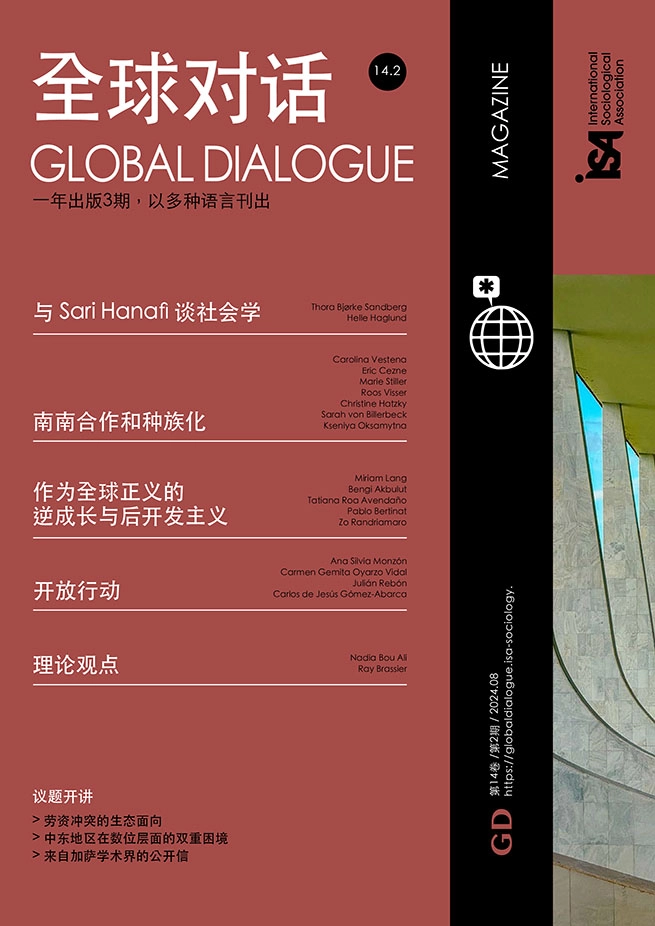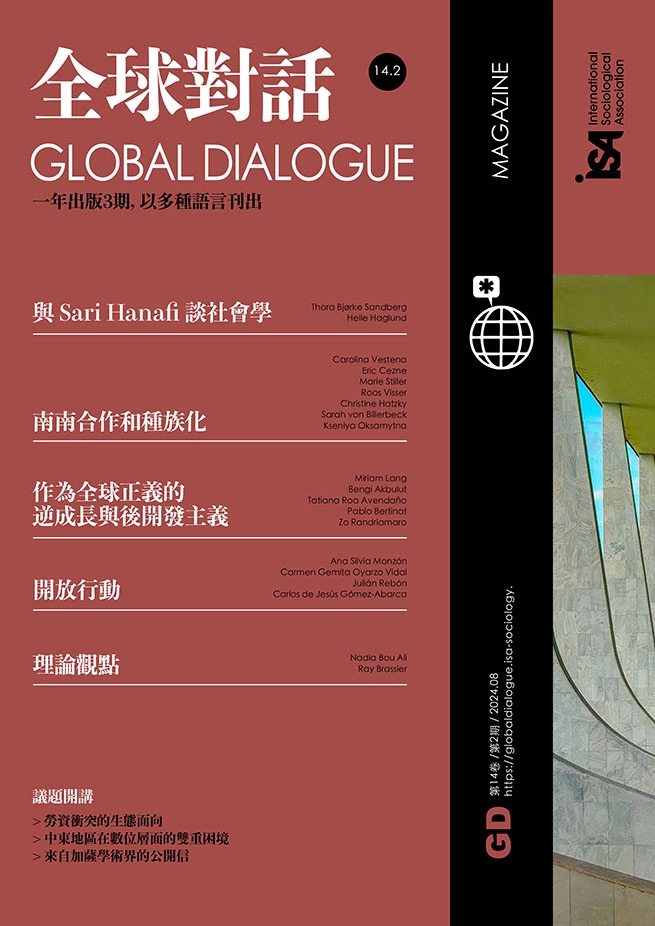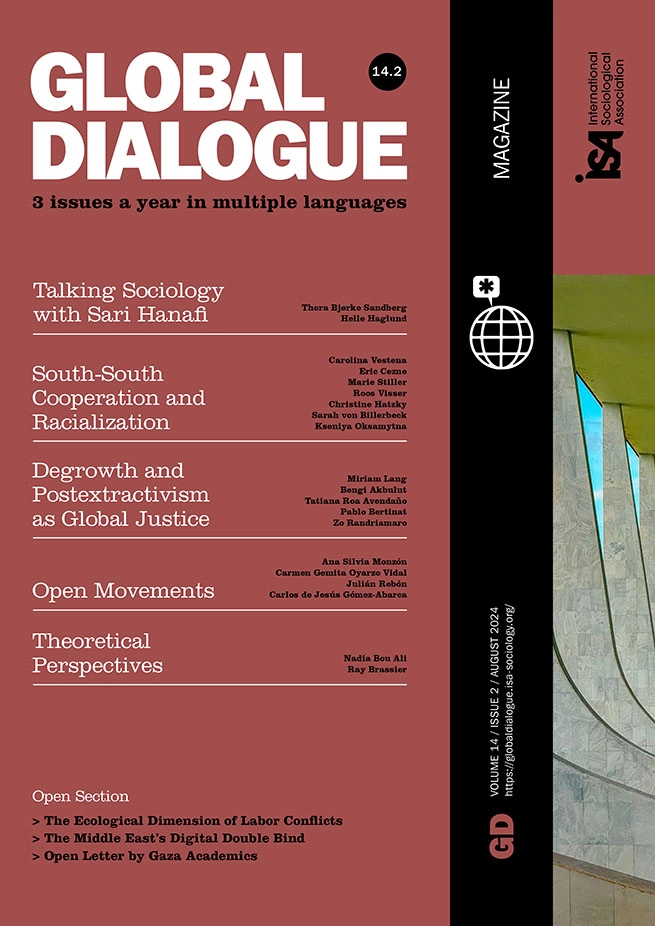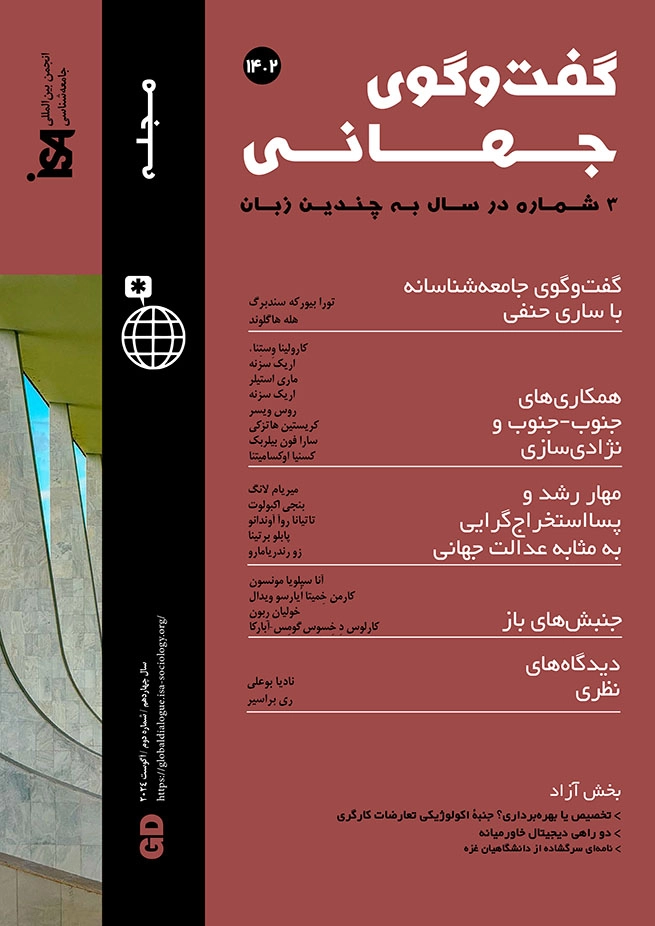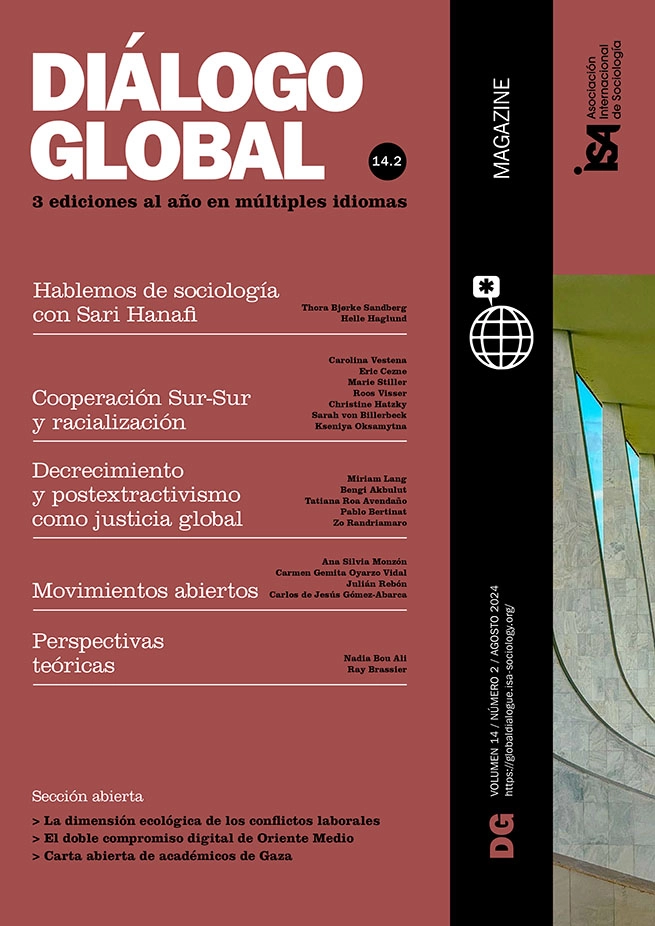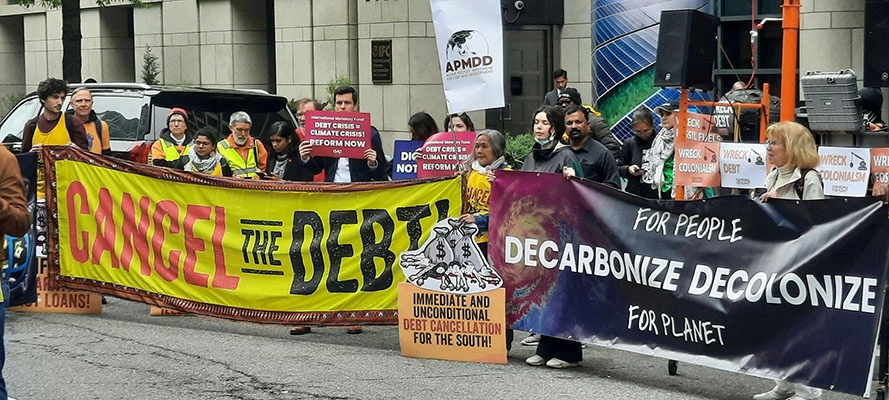Degrowth mainly presents itself as a perspective from and for countries of the geopolitical North, especially Europe and North America. Regarding the relations with the global South, many degrowth proponents clarify that a degrowth agenda is no universal recipe for transformation, rejecting the very idea of one universal transformational path valid for all world regions. Rather, they state that degrowth in northern high-income countries is necessary to “increase the ecological space” or “liberate conceptual space” for countries or economies situated on the peripheries of the capitalist world system, to allow them “to find their own trajectories to what they define as the good life”. A complementary argument goes that the poorer countries of the global South need to grow in order to satisfy people’s basic needs. It evolves around specific mainstream understandings of poverty, needs and well-being, associated with material abundance versus scarcity which seem questionable in the light of recent debates in the global South.
This article attempts to sketch out some strengths and weaknesses of degrowth considering the task to bring about a globally just, ecosocial transformation, and explores possibilities of cross-fertilization with some global debates in this context. The text is organized around two main arguments: First, I will summarize existing dialogues, resonances and (non-) engagements between degrowth – as a movement and as a research agenda – and the global South. And second, I will highlight the limitations of the claim that degrowth in the North will “open space for the South”, pointing out where some debates could be beneficial to degrowth and vice-versa and establishing the need for decolonial North-South alliances against (green) growth.
Synergies between degrowth and alternative paradigms from the South
As degrowth proponents have pointed out, the concept of degrowth might not be very mobilizing in the global South, where the paradigm of ‘underdevelopment’ still has strong effects on people’s subjectivities. But there is also no need for degrowth to become a guiding concept for transformation in the South. Latin American authors, such as Arturo Escobar, Eduardo Gudynas, Alberto Acosta and others, have evidenced certain convergences and synergies between degrowth and postextractivism, post-development, and indigenous worldviews like sumak kawsay that should be further explored in the perspective of necessary North-South alliances.
Both sumak kawsay and degrowth reject the modern idea of illimited progress and expansion and focus on qualitative rather than quantitative factors regarding what is considered a good life. Both also reject the notion of illimited needs fueled by modern capitalism and advocate for limits: Degrowth sees “limits not as something externally imposed upon us, but as a conscious choice of self-limitation”, in a collective, deliberative exercise of radical democracy; sumak kawsay is dysfunctional to capitalist accumulation as it seeks to re-balance emerging inequalities and considers them a threat to community life. It also fosters collaboration and reciprocity instead of competitivity. Both embrace the idea that autonomy, collective self-government or freedom imply giving oneself rules of conduct and therefore limits, instead of following arbitrarily or externally imposed ones.
However, while the rich conceptual dialogue between degrowth and alternative visions from Latin America must be acknowledged, from a perspective of global dialogues it is problematic that degrowth proponents formulate their policy proposals mainly just ‘from and for the global North’, without analytically engaging with the deep entanglements and interdependencies in our modern-colonial globalized world.
Degrowth in the North is not enough
As was initially mentioned, a recurrent thesis in degrowth literature is that degrowth in high-income countries of the global North will ‘liberate conceptual space’ or ‘ecological space’ for the global South. Some authors, such as Jason Hickel, even claim that degrowth is a decolonial strategy. I strongly agree with Jason Hickel that southern countries should be free to organize their resources and labor around meeting self-defined needs rather than around servicing northern growth. Albeit this only will occur if the structures, institutions and rules of the globalized capitalist world system are transformed and actual room for maneuver is created for the countries of the South. And this requires both regional and global alliances.
Again, let’s look back on the recent Latin American experience. Even when a series of – more or less – left-oriented governments (2000-2015) claimed to leave neoliberalism behind and to overcome extractivism, configurating an exceptional geopolitical constellation in the region, the respective countries could not achieve a self-determined, endogenous process of sustainable regional integration. Rather, they competed against each other in the export of raw materials, servicing the growth of China and other big economies. It would be shortsighted to exempt the Latin American governments from all liabilities in this context and to ignore intra-regional power imbalances.
But they were also trapped in a tight web of global trade and intellectual property rules, finance and debt dynamics, country risk rankings, dispute settlements etc. that significantly narrowed their possibilities. A web of rules that, from the perspective of global justice, operates in an asymmetric way. Once again unequal exchange and power imbalances in the global political economy operate when the prices that Latin American countries get for exporting primary goods are significantly lower than what they pay for the processed goods they import. Today, imperial appropriation not only includes cheap unprocessed raw materials, but also cheap labor and processed goods from certain regions of the South that became the world’s factories in the 80s: global commodity chains, where northern firms deploy monopoly power to depress southern suppliers’ prices, while setting final prices as high as possible, still allow the global North to appropriate this industrial labor for cheap.
Consequently, it is a necessary, but no sufficient condition to reduce the material and energy throughput in the global North for the South to thrive. Actual ‘spacemaking’ for endogenous and sovereign reforms in the South will not happen through a simple reduction in the demand of raw materials if the asymmetric global economic structures remain untouched. That might even lead to a catastrophic recession in some southern countries, which is what degrowthers vow to avoid.
The need for decolonial global alliances against green growth
Instead of opening pathways for sustainable and globally just ecosocial transitions, the hegemonic answers to climate change centered on green growth are leading to a considerable intensification of extractivist pressure on regions of the global South. Their priorities are to ensure a) a sufficient supply of ‘strategic minerals’ for a new industrial revolution toward renewables; b) ‘energy security’ and c) good decarbonization records for the global North.
Instead of a real energy transition, this rather translates into an overall energy expansion – a new driver for economic growth. The geopolitics of the Ukraine war have exacerbated this expansion further, including fossil fuels. Research from Latin America and Africa shows how this tech-based and corporate-led process to advance green growth translates into manifold new environmental injustices and forms of green colonialism.
Hegemonic green growth policies assign four sets of roles to regions from the global South, each of which contains a strong dimension of imperial appropriation: (1) An important reserve of raw materials, assumed available for the major world powers’ decarbonization. (2) A potential place where the CO2 emissions that will continue to take place in the North (including China) can be ‘neutralized’ through carbon offset projects, to reach the goal of ‘zero net emissions’ – not to be confused with zero real emissions, in Europe, the US or China. (3) A recipient for waste exports from the North, including electronic and toxic waste from renewable technologies and digitalization. And finally, (4) a potential market for the new technologies that the eco-modernized northern economies will produce and sell at high prices.
One of the main contributions of degrowth to debates about global environmental governance and a just ecosocial transition is to openly problematize green growth, which makes degrowth a potential ally for actors from the peripheries. But it only will be such an ally if, at the same time, degrowth scholars and movements actively engage in strategies to dismantle the structural hierarchies of the global political economy.
My argument is not that the global South should generically degrow, in the sense of shrinking all activities. It is the global North, considering its historical responsibilities and colonial as well as environmental debt, that must contribute the major part in the absolute reduction of material and energy throughput in the face of ecological breakdown. But de-centering economic growth, and prioritizing life within planetary boundaries instead, can bring about a selective degrowth of harmful productive and reproductive activities, both in the global North and South.
In the global South, this would mean, for example, to reduce extractivism, which has not only impoverished many social groups in the name of growth, but also constitutes a major structural obstacle on the path toward self-determined economic policies. On the other hand, being one of the few voices in the global North that questions the logic of green growth and claims structural changes, degrowth is predestined to be part of both research and political alliances to such ends – but only if it opens up to a real dialogue with movements in the global South that goes beyond conceptual convergences and engages in strategies for a structural change of the existing asymmetric international relations.
* This text is a shortened version of: Lang, M. (2024) “Degrowth, global asymmetries and ecosocial justice: decolonial perspectives from Latin America.” Review of International Studies https://doi.org/10.1017/S0260210524000147.
Miriam Lang, Universidad Andina Simón Bolivar, Ecuador <miriam.lang@uasb.edu.ec>





